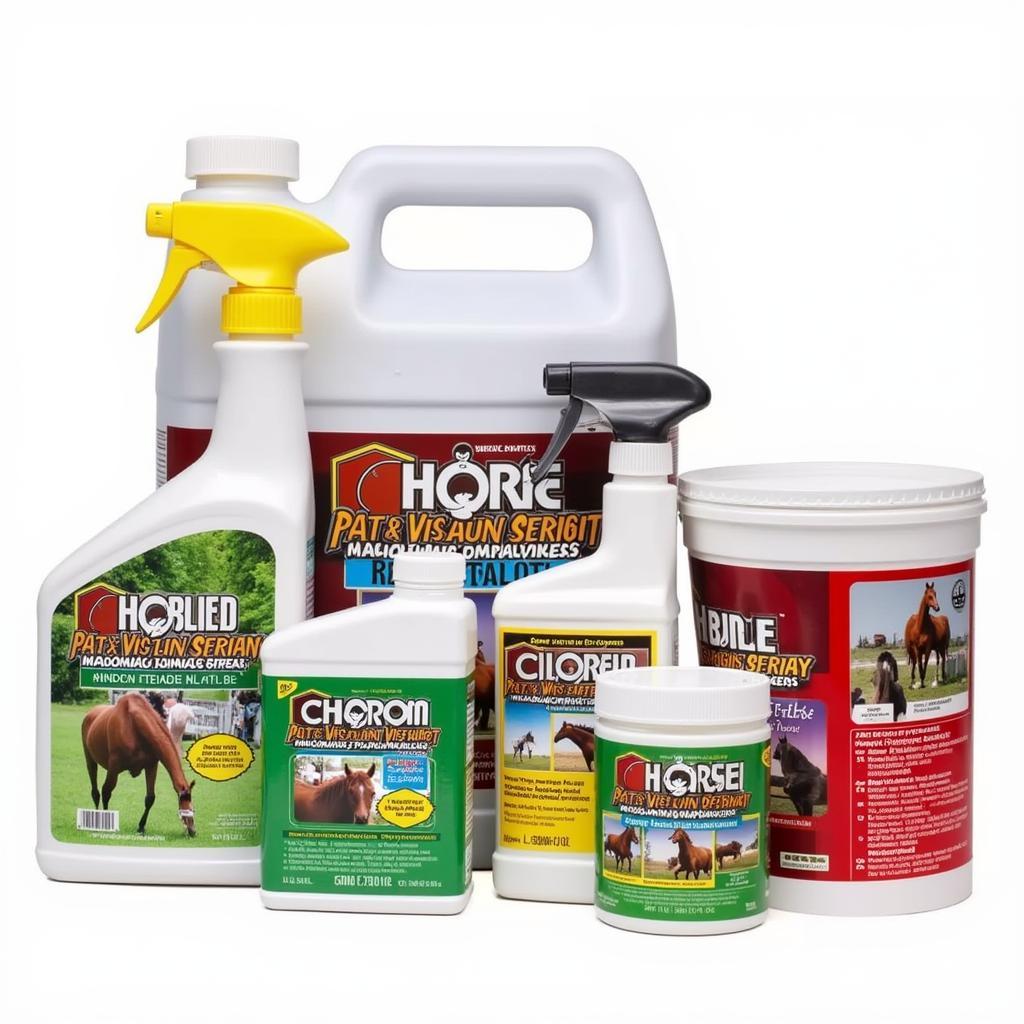Protecting your horse from biting insects is a crucial aspect of equine care. Horse Fly And Tick Spray is an essential tool in your arsenal against these pesky parasites. Finding the right product and using it correctly can significantly improve your horse’s comfort and overall health.
Understanding the Importance of Horse Fly and Tick Spray
Flies and ticks are more than just a nuisance; they can transmit diseases and cause significant irritation, leading to skin infections, allergic reactions, and even behavioral problems in horses. A quality horse fly and tick spray can prevent these issues, allowing your horse to graze peacefully and enjoy time in the pasture. Choosing the right spray involves understanding the different types of products available, their active ingredients, and how they work.
horse sunscreen for nose can be used in conjunction with fly spray to offer comprehensive protection.
While discussing different spray types, it’s important to consider other fly control methods. For instance, fly control for horses in pasture involves integrated pest management strategies beyond just sprays.
Choosing the Right Horse Fly and Tick Spray
Several factors contribute to selecting an effective horse fly and tick spray. Consider the level of protection needed, the environment your horse lives in, and any sensitivities your horse may have. Some sprays are formulated for specific insects, while others offer broader protection. Reading labels and understanding the ingredients is essential.
 Different Types of Horse Fly Spray
Different Types of Horse Fly Spray
Dr. Emily Carter, DVM, a renowned equine veterinarian, emphasizes the importance of selecting the correct spray. “Not all fly sprays are created equal. Consider your horse’s individual needs, the prevalent insect species in your area, and always follow the manufacturer’s instructions for safe and effective application.”
Applying Horse Fly and Tick Spray Effectively
Proper application is just as important as choosing the right product. Always follow the instructions on the label. Apply the spray evenly to your horse’s coat, avoiding sensitive areas like the eyes and nose. pine sol fly spray for horses is a popular homemade option, but it’s crucial to research its safety and effectiveness before use.
horse spray encompasses a wider range of products, including those for grooming, wound care, and other purposes.
Natural Alternatives for Horse Fly and Tick Control
For horse owners seeking natural alternatives, options like neem oil horses can offer some repellent properties. However, it’s essential to research the effectiveness and potential side effects of any natural remedy.
“Natural options can be beneficial, but it’s important to ensure they are truly effective in protecting your horse,” adds Dr. Carter. “Always consult with your veterinarian before using any new product, especially on sensitive horses.”
Conclusion
Effective horse fly and tick spray is an integral part of responsible horse ownership. Choosing the right product and applying it correctly can protect your horse from disease, irritation, and discomfort. By understanding the different options available and considering your horse’s individual needs, you can provide your equine companion with the best possible protection against these biting pests.
FAQ
- How often should I apply horse fly and tick spray?
- What are the common ingredients in horse fly and tick spray?
- Are there any natural alternatives to chemical sprays?
- How can I protect my horse’s sensitive skin from fly spray irritation?
- What should I do if my horse has an allergic reaction to fly spray?
- Can I use dog fly spray on my horse?
- What are the most effective fly control strategies for pastures?
Common Scenarios and Questions:
- Scenario: My horse is constantly stomping and swishing its tail. What could be the cause, and what should I do?
- Question: Are there specific fly and tick sprays recommended for horses with sensitive skin?
- Scenario: I’m going on a trail ride in a heavily wooded area. What precautions should I take to protect my horse from ticks and other insects?
Further Reading and Resources:
- Learn more about protecting your horse’s nose from the sun with our guide on horse sunscreen for nose.
- Explore various fly control methods for horses in pastures: fly control for horses in pasture
- Discover more about using neem oil for horses: neem oil horses
For further assistance, please contact us at Phone Number: 0772127271, Email: [email protected], or visit us at QGM2+WX2, Vị Trung, Vị Thuỷ, Hậu Giang, Việt Nam. We have a 24/7 customer support team.